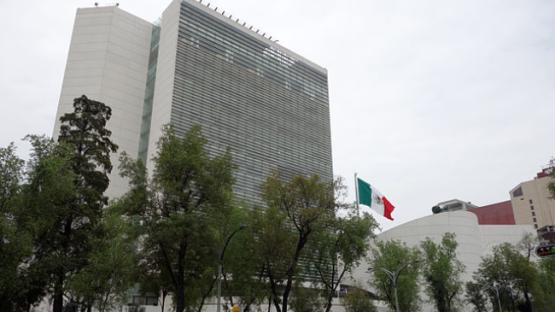
Photo of the Mexican senate by Haakon S. Krohn
Mexico's proposed new CUID biometric ID card, funded by the a $225 million loan from the World Bank, has been criticised by civil society organisations.
Led by PI's global partner in Mexico Red en Defensa de los Derechos Digitales (R3D), 25 organisations (including PI) have signed a letter about how this system threatens human rights.
This proposed system threatens to increase surveillance and exclude the most vulnerable, amplified by its use of biometrics.
The senate, as well as the World Bank, must take the concerns of civil society seriously.

Photo of the Mexican senate by Haakon S. Krohn
Some of the most vulnerable groups in Mexico are amongst the groups at risk from a draft General Population Law that creates a biometric “Unique Digital Identity Card” (CUID), argue civil society organisations. The proposed law has now reached the senate, and has raised serious concerns from civil society organisations. Led by our global partner in Mexico Red en Defensa de los Derechos Digitales (R3D), PI along with 25 organisations have signed a joint letter to the members of the senate, arguing that "the CUID seriously threatens human rights".
The Spanish and English version of that joint letter can be found below.
The new biometric ID card project is being funded by the World Bank to the tune of 225 million USD. This huge amount of lending comes from an organisation that is a leading funder and proponent of ID systems around the globe.
In the letter, civil society organisations make a number of recommendations, including removing the biometric component; ensuring that CUID is not mandatory; and preventing public or private services being conditional on CUID. These recommendations aim to address the key risks emerging from the deployment of such a biometric identity system, which we outline below.
It is imperative that the Mexican Senate considers the serious risks and dangers that this proposed system brings. It must consider what safeguards need to be impleted to mitigate these risks, and these must inform the design and deployment of the new ID system to ensure people and their rights are protected.
Similarly, the World Bank must realise that it too will be held responsible for these risks, and needs to consider the implications of what they are funding and encouraging in Mexico.
It is time for the pressing and urgent concerns of civil society to be taken seriously.